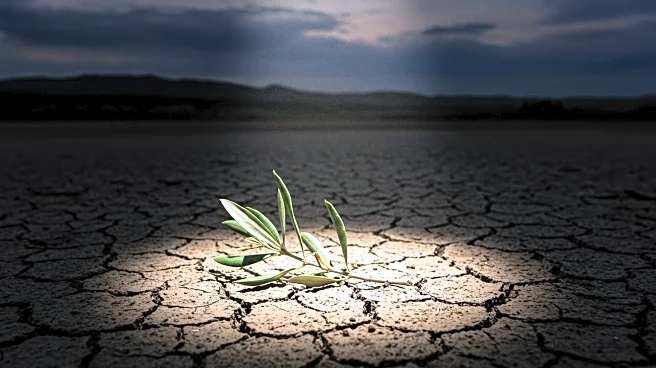What's Happening?
A United Nations-backed panel has declared a famine in northern Gaza, warning that the crisis could extend to central and southern regions by late September. The declaration follows nearly two years of conflict with Israel, which has restricted the flow of food and aid into the area. The Integrated Food Security Phase Classification (IPC) confirmed that Gaza City and surrounding areas are experiencing a Phase 5 famine, the highest level of acute food insecurity. This situation is characterized by widespread starvation, illness, and mortality. The declaration is based on specific criteria, including at least 20% of households facing extreme food shortages, 30% of children under five suffering from acute malnutrition, and a daily death rate of two per 10,000 adults from non-trauma causes.
Why It's Important?
The famine declaration in Gaza highlights a severe humanitarian crisis that could have significant implications for international relations and aid efforts. The situation underscores the urgent need for increased humanitarian access and aid to prevent further deterioration. The declaration may increase pressure on Israel to allow more aid into Gaza and could lead to diplomatic consequences. The crisis also serves as a critical reminder of the importance of early intervention in preventing famines, as prolonged starvation can lead to high mortality rates even with subsequent aid.
What's Next?
The famine declaration is expected to mobilize international response efforts, with calls for a ceasefire and full humanitarian access to Gaza. Aid organizations and governments may increase pressure on Israel to facilitate the delivery of food and medical supplies. The situation will likely remain a focal point in international diplomatic discussions, with potential implications for regional stability and humanitarian policies.
Beyond the Headlines
The famine in Gaza raises ethical and legal questions about the responsibilities of conflicting parties to ensure humanitarian access and the role of international bodies in crisis intervention. The situation may also prompt a reevaluation of global hunger monitoring systems and the effectiveness of current aid strategies.









